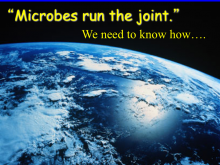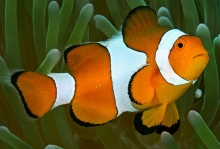- You are here:
- GT Home
- Sciences
- Home
- List of Available Research Projects
Coral reefs have tremendous environmental, economic, and cultural value but are in dramatic global decline. Over the last 4 decades, coral cover on Caribbean reefs has declined by ~80% and on Pacific reefs by more than 50%. Declines are being driven by a host of anthropogenic stresses including global change, overfishing, pollution, and disease spread, but all of these stresses generally result in losses of corals, increases in seaweeds, and then a loss of reef resilience as seaweeds dominate and suppress corals.
The student will work jointly between the labs of Drs. Frank Stewart (Biological Sciences) and Kostas Konstantinidis (Biological Sciences, Civil and Environmental Engineering) to characterize a globally important marine bacterial group (SAR11). A collaboration between these labs recently described how SAR11, the world’s most abundant organismal group, has adapted to the unique chemical and physical environment of anoxic oxygen minimum zones (OMZs). This work (Tsementzi et al.
Seaweeds create toxic compounds to deter consumers (fish) and poison competitors (corals). However specific fishes resist these toxins, and some corals also are resistant to their effects. These tolerances may be due to unusual microbes in the gut microbiomes of fishes and in coral mucus coverings. GT has an unusual mixture of marine ecologists, chemists and microbiologists to address these issues.
Native microbial communities (microbiomes) of the vertebrate gut exert vital effects on host ecology, physiology, and evolution. This project explores the potential that the gut microbiome of herbivorous fish plays a vital role in biochemically degrading algal toxins consumed by the host fish, and therefore structuring diet choice and ecology. The student will work jointly between the labs of Drs. Mark Hay and Frank Stewart to test this broad hypothesis, likely focusing on the microbiomes of specific coral reef herbivores.





